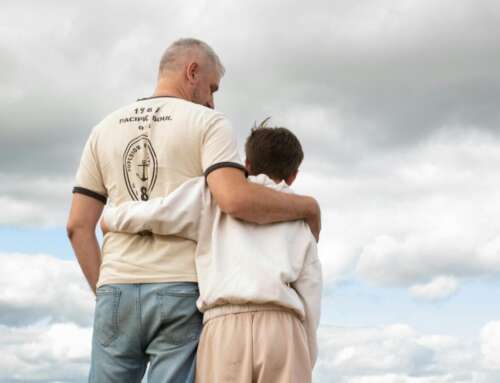Dolly January 2013
Good advice on standing against sexist stereotypes, teen marriage, budgeting and managing internet – but why so much on scoring a boyfriend?
In its first edition for the year, Dolly brings readers some important content to help them launch into 2013.
‘Sexism: what’s it all about?’ examines how gender-based prejudice and discrimination is alive and well. Women continue to be paid less than men and hold a tiny proportion of board seats and CEO positions. They continue to be treated inappropriately in the workplace. A recent survey found 33% of women say they regularly experience sexism at work. Girls also experience sexual name calling and labels at school. They are encouraged to make a stand against gender stereotyping.
In ‘Inspiring Teen’s’, ‘I blitzed the HSC’ is the story of 19-year-old refugee Fatima who received 96.75 in the HSC. Fatima, her mother and five brothers and four sisters, who belonged to the minority Hazara group, arrived in Australia having fled the Taliban in 2007. Their father escaped earlier. She says she has changed from being a shy girl with no English to a “confident educated person” now enrolled in a Law/Communications degree. Stories like this can help readers value their education and aim higher.
In ’Reality Reads’ we meet Carrie, 14, who has diabetes, a 19-year-old with one hand and an 18-year-old who tells a story of devotion in being a foster mum to her struggling sister’s baby.
‘Underage & Engaged’ is about teen marriage with advice from Equilibrium Psychology. Readers are told that “taking the leap when you’re still discovering who you are and what you really want from life can make it hard for you to develop a sense of self and identity separate from your husband…Listen to your parents and friends and if you do have any doubt that your boyfriend is ‘The One’, then don’t rush into anything.”
‘How to be your best self in 2013’ includes being a good friend (be thoughtful, get adventurous, be assertive and don’t e-gossip), do better at school (get organised, create a study space, set yourself a goal), health (download an app, eat a range of healthy goods, keep moving), and boys (love yourself first, look beyond the school jocks, and interestingly, pretend he’s a girl – to make it easier to talk to him. Not so sure about that one).
A really helpful article on internet addiction opens with Elissa who spends four hours a day on Facebook, too afraid of missing out if not constantly online. Almost a quarter of teens are online for four or more hours a day on non-school related things, 75% are on social networks daily. Psychologist Andrew Campbell says Pathological Internet Use (PSU) is common. “Internet addiction tends to happen when a person spends more time online than they do offline and starts ignoring social activities or other everyday responsibilities like work and self-care…Losing sleep, skipping meals or not catching up with friends face-to-face so you can be online are all signs of internet addiction,” says Campbell. Advice on avoiding internet addiction includes: don’t carry your phone with you around the house, try not to reach for lap top or phone when bored or winding down, talk to your friends about going on a tech break for three weeks (which is how long it takes to break a habit).
A group of five Dolly readers aged 15-17 share their thoughts as part of a ‘Body Image Panel’. While what they say is mostly OK (love yourself, we’re all different, etc), Anastazia, 16, lost weight which she says is much more positive than waking up and thinking, ‘Another day of waking up fat.’ This could be hurtful to larger-sized girls who continue to be unrepresented in girls’ magazines (Kudazi, 15, says “show more real people. But not going overboard, not putting big girls everywhere.”) What continues to disturb me is the emphasis on individuals, and the lack of attention to cultural messages. Advertising and TV get a brief mention, but the emphasis is mostly on girls needing to feel good about themselves. This won’t happen without addressing the broader toxic cultural messages girls receive every day.
There’s a piece on how to plan your budget and save money which contained 30 helpful tips but alongside is a full page image of a Sportsgirl dress ($149.95) headed: ‘Yes, you can afford this dress by the end of the month!’ So all that great advice, just to get the dress.
Dolly Doctor’s ‘Great Sexpectations’ aims to ‘bust six of the most common sex myths’. Readers are asked to consider what is in their best interests. Myth 1 ‘You should just get it over with’. “Ensure that he’s showing interest in what’s important to you and make time to see you because he loves your company,” says adolescent psychologist Jenny Chapman. Other myths: ‘Your first time will be like the movies’, ‘Once you start you can’t stop (“Never forgot that you can say ‘no’ at any point during a sexual encounter”), ‘Condoms wreck the experience’, ‘Brazilian waxing makes it feel better’ (I like this advice – “If a guy asks you to get a Brazilian, tell him, ‘Let’s do it together and you can go first!’”) and ‘Having sex will make him like you.’
But contrast all this with ’12 Life Mysteries Solved!’ With a title like this, readers might expect answers to the big questions of life, something philosophical perhaps to guide them in life. Who am I? What is my purpose? How can I contribute positively to this world?
Dear reader, keep your expectations low.
Here’s a sample. Mystery 1: ‘Does my crush like me back?’, Mystery 2: ‘Do my FB posts annoy people?’, Mystery 3: ‘Does my boyf’s female friend have a crush on him?’, Mystery 5: ‘Will I score a boyfriend soon?’, and Mystery 6: ‘Will I save enough to buy that formal dress I’ve been eyeing?’ (the $149.95 one above perhaps?).
Pursuing the scoring a boyfriend theme, in Dolly’s ‘Guy Town’, girls are offered ‘Foolproof ways to stay on his mind over the summer break’: make a ‘sorta’ date, compliment him, and facebook flirt. Then there’s ‘New BF no-go convo zones’ where ‘Danny’ tell girls what boys don’t want to talk about, including “lady matters of the downstairs kind.” Because we wouldn’t want to call it what it was, would we.
The number one trick for taming a bad boy?: “I think you need to give a guy like that an incentive to change. Otherwise, it will probably never happen,” says ‘New Home And Away hottie’ Nic Westaway. So it’s all up to her to change bad boy behaviour? Isn’t that a danger philosophy for girls?
At the end of ‘Meet Australia’s best boyfriend’ (showcasing boys 14-18), Dolly asks “Single, but now really want a boyfriend? “ Then head to p.100. You almost expect a list of online dating sites. There’s no advice anywhere on how to enjoy being single.
The piece on Sexism cited earlier opens with a scene from Puberty Blues in which the girls sit around with meat pies waiting to congratulate the boys on their surfing session. Readers are told thank goodness those days are over and “these days there are loads of gals surfing waves…” All well and good. But totally undermined in the piece ‘Summer Lovin’ which advises girls whose best chance of meeting a boy is at the beach (based on multiple choice questions), “Always sporting a cute bikini, you’ll run into your next crush somewhere near the sand. He might be hitting the waves, so head out in the water and WIN HIM OVER BY ASKING HIM TO TEACH YOU TO SURF. HE’LL BE STOKED THAT YOU’RE INTO HIS FAVE SPORT. SURF’S UP!” (caps mine). What if she already knows how to surf? What if it’s her favourite sport too?








Leave A Comment